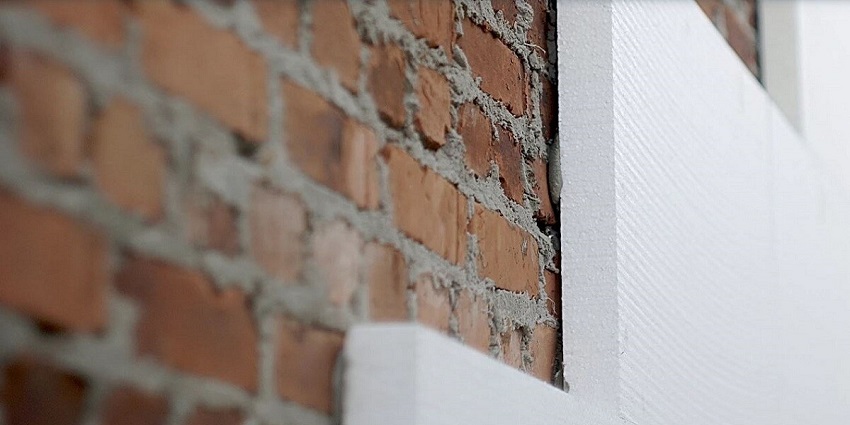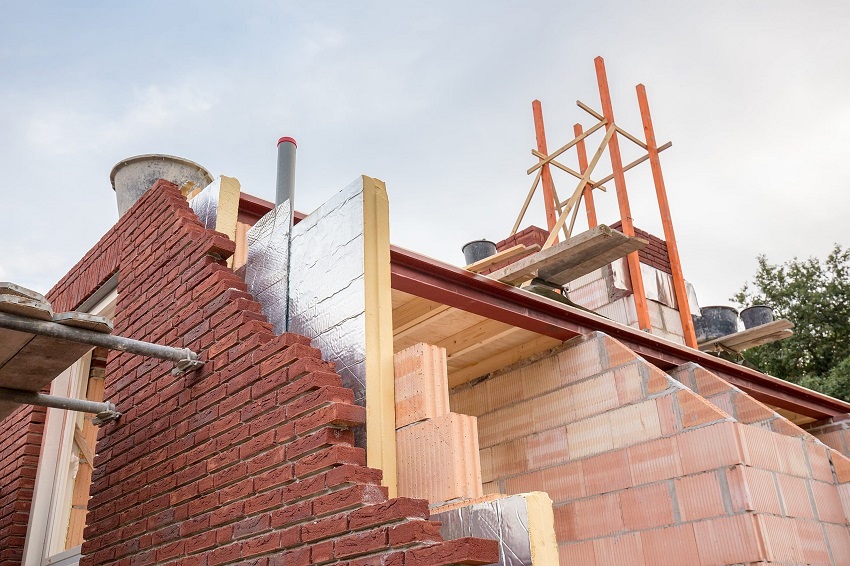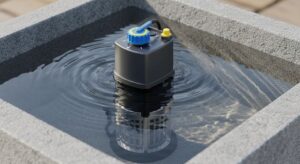Why is Cavity Wall Insulation Used?

As a homeowner, you may have heard about cavity wall insulation and wondered what it is and why it’s important. In this article, we will explore the benefits of cavity wall insulation and why it is widely used in modern construction. From energy efficiency to cost savings, there are several reasons why cavity wall insulation has become an essential component of many buildings. The article is brought to you by Thebinderblog.com.
What is Cavity Wall Insulation?
Before we dive into the reasons for using cavity wall insulation, let’s understand what it is. Cavity wall insulation refers to filling the gap or cavity between the inner and outer walls of a building with an insulating material. The purpose of this insulation is to prevent heat transfer and enhance the energy efficiency of the building.
The Importance of Energy Efficiency
One of the primary reasons for using cavity wall insulation is to improve energy efficiency. Properly insulated walls can significantly reduce heat loss during colder months and prevent heat from entering during hotter months. This helps maintain a comfortable indoor temperature, reduces the need for excessive heating or cooling, and ultimately lowers energy consumption.
Lower Energy Bills
By enhancing energy efficiency, cavity wall insulation can lead to substantial cost savings. When a building is well-insulated, it requires less energy to heat or cool the interior, resulting in lower utility bills. Homeowners and businesses can benefit from these cost savings, making cavity wall insulation a wise long-term investment.
Condensation Control
Cavity wall insulation also plays a crucial role in controlling condensation. When warm, moist air comes into contact with cold surfaces, it can lead to condensation, which may cause dampness and mold issues. Insulating the walls reduces the temperature difference between the interior and exterior surfaces, minimizing condensation and protecting the building’s structure.
Soundproofing Benefits
In addition to thermal insulation, cavity wall insulation offers soundproofing benefits. The insulation material helps reduce the transmission of sound between different areas of the building. This is particularly advantageous in urban areas or properties located near busy roads, as it helps create a more peaceful and comfortable living or working environment.
Environmentally Friendly
Using cavity wall insulation contributes to a more sustainable environment. By reducing energy consumption and greenhouse gas emissions, cavity wall insulation helps combat climate change and minimizes the carbon footprint of buildings. As environmental awareness grows, the demand for eco-friendly construction practices, including insulation, continues to rise.
Longevity and Durability
Cavity wall insulation can extend the lifespan of a building by protecting it from external elements and preventing moisture-related issues. Properly installed and maintained insulation can ensure that the building’s structure remains intact for many years, reducing the need for costly repairs and renovations.
Enhanced Property Value
Properties with cavity wall insulation generally hold higher market value compared to those without insulation. Energy-efficient homes and commercial buildings appeal more to buyers and tenants, making cavity wall insulation a valuable investment that can increase the property’s overall worth.
Simple and Non-Intrusive Installation
The process of cavity wall insulation is relatively straightforward and non-intrusive. Qualified professionals can inject the insulating material into the cavity without causing any significant disruption to the building’s occupants. This makes it a convenient and hassle-free upgrade for both new constructions and existing buildings.
Moisture Barrier
Cavity wall insulation acts as a moisture barrier, protecting the interior of the building from rainwater penetration. The insulation material prevents water from entering the walls and causing structural damage, ensuring the building’s integrity remains intact over time.
Sustainable Building Codes and Incentives
In many regions, sustainable building practices are promoted through various codes and incentives. Cavity wall insulation aligns with these green building principles, making it a favorable option for builders and property owners who seek to comply with regulations and avail of associated benefits.
Aesthetic Compatibility
Cavity wall insulation doesn’t alter the external appearance of a building. The insulation material is hidden within the cavity, preserving the architectural design and aesthetics of the structure while providing all the aforementioned benefits.
Conclusion
Cavity wall insulation is a vital aspect of modern construction, providing numerous advantages ranging from energy efficiency and cost savings to condensation control and soundproofing. As we continue to prioritize sustainability and environmental consciousness, cavity wall insulation will remain an essential practice in the building industry, contributing to a greener and more energy-efficient future.
FAQs
Is cavity wall insulation suitable for all types of buildings?
Yes, cavity wall insulation is suitable for most buildings with a cavity between the inner and outer walls. However, it is essential to consult a qualified professional to assess the suitability of your specific building.
Can cavity wall insulation cause dampness issues?
Properly installed cavity wall insulation should not cause dampness issues. It is essential to hire experienced installers to ensure the insulation is done correctly.
How much can I save on energy bills with cavity wall insulation?
The savings on energy bills can vary depending on factors like the size of the building, local climate, and energy usage. On average, homeowners can save up to 20% on heating and cooling costs with cavity wall insulation.
Is cavity wall insulation a DIY project?
No, cavity wall insulation is not a DIY project. It requires specialized equipment and expertise, so it’s best to hire a professional insulation company.
Does cavity wall insulation require regular maintenance?
Once installed, cavity wall insulation typically requires little to no maintenance. However, it’s advisable to have periodic inspections to ensure it remains in good condition.








